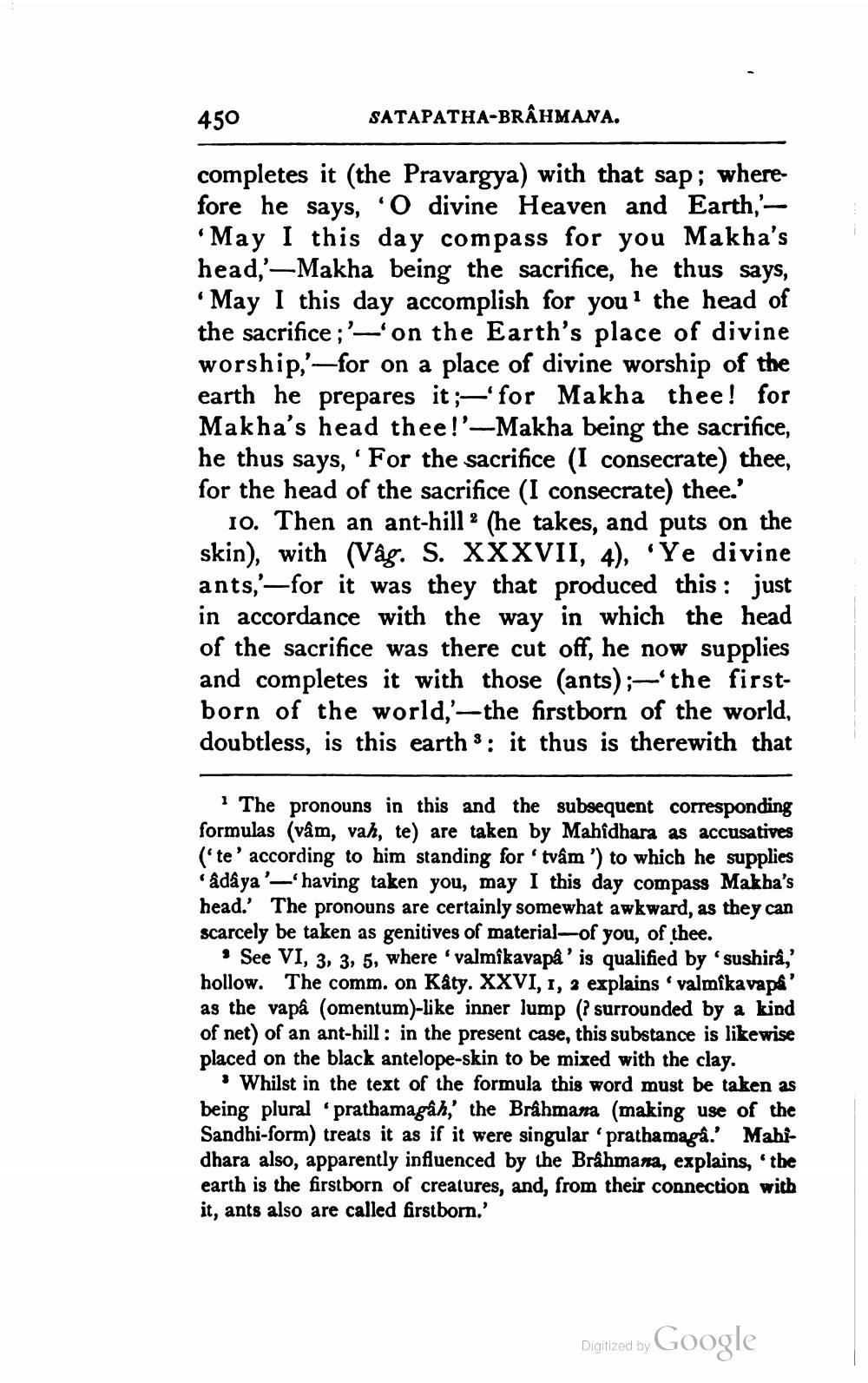________________
450
SATAPATHA-BRAHMANA.
completes it (the Pravargya) with that sap; wherefore he says, 'O divine Heaven and Earth,'•May I this day compass for you Makha's head,'— Makha being the sacrifice, he thus says,
May I this day accomplish for you the head of the sacrifice; '-'on the Earth's place of divine worship,'—for on a place of divine worship of the earth he prepares it ;– for Makha thee! for Makha's head thee!'-Makha being the sacrifice, he thus says, ' For the sacrifice (I consecrate) thee, for the head of the sacrifice (I consecrate) thee.'
10. Then an ant-hill ? (he takes, and puts on the skin), with (Vág. S. XXXVII, 4), «Ye divine ants,'--for it was they that produced this : just in accordance with the way in which the head of the sacrifice was there cut off, he now supplies and completes it with those (ants);-'the firstborn of the world,'— the firstborn of the world, doubtless, is this earth 8 : it thus is therewith that
The pronouns in this and the subsequent corresponding formulas (vâm, vah, te) are taken by Mahîdhara as accusatives ("te' according to him standing for 'tvậm ') to which he supplies * âdâya'-'having taken you, may I this day compass Makha's head.' The pronouns are certainly somewhat awkward, as they can scarcely be taken as genitives of material-of you, of thee.
• See VI, 3, 3, 5, where 'valmîkavapa' is qualified by 'sushira,' hollow. The comm. on Käty. XXVI, 1, 2 explains' valmikavapa' as the vapa (omentum)-like inner lump (? surrounded by a kind of net) of an ant-hill : in the present case, this substance is likewise placed on the black antelope-skin to be mixed with the clay.
. Whilst in the text of the formula this word must be taken as being plural .prathamagåh,' the Brahmana (making use of the Sandhi-form) treats it as if it were singular 'prathama gå.' Mabidhara also, apparently influenced by the Brahmana, explains, the earth is the firstborn of creatures, and, from their connection with it, ants also are called firstborn.'
Digitized by Google




